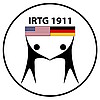B4 (2017 - 2020) – Regulation of antimicrobial neutrophil functions by small GTPases
Neutrophils are rapidly recruited to infected tissues and are essential cells of the innate defense against pathogens. Proper regulation of neutrophil functions and their life span in the infected tissue is, consequently, crucial for an effective antimicrobial response (Kolaczkowska and Kubes, Nat Rev Immunol 2013). Previous studies indicate the essential role of small GTPases in neutrophil recruitment to inflammatory sites. However, the role of small GTPases in neutrophil antimicrobial activity is still poorly understood. Similarly, the contribution of small GTPases to the regulation of neutrophil apoptosis and, therefore, to the resolution of inflammation, needs to be clarified. By using LPS challenge as an in vivo model of infection the Filippi lab demonstrated the essential roles of small GTPases for the regulation of neutrophil recruitment (Filippi et al. Blood 2007, Kumar et al. 2012, Kumar et al. J. Exp. Med. 2014). These factors function either as positive (Rac-1 and Cdc42) or negative (Rap1) regulators of neutrophil functions and mediate their action via signalling events involving MEK-Erk1/2 and PI3K/Akt. The Laskay lab recently showed the essential involvement of the p38-MAPK, MEK-Erk1/2, PI3K/Akt signalling pathways both for the survival and antimicrobial effector functions of human neutrophils, including the activation of the ROS production and release of neutrophil extracellular traps (NETs) (Sarkar et al. Int J. Med Microbiol 2015, Behnen et al. J Immunol 2014). In addition, the Laskay lab showed for the first time that neutrophils can phagocytose apoptotic cells, a process associated with anti-inflammatory effects (Esmann et al. J Immunol 2010). The underlying hypothesis of this project is that small GTPases are crucial regulators of neutrophil life span and antimicrobial neutrophil functions. The project aims to clarify the contribution of the small GTPases Rac, Cdc42 and RhoA to the neutrophil-mediated defense to extra- and intracellular microbial pathogens and to the regulation of neutrophil apoptosis.
Aims:
1. Assess the involvement of Rac, Cdc42 and RhoA in the activation of antimicrobial effector mechanisms of primary human neutrophils in vitro
2. Assess the involvement of Rac, Cdc42 and RhoA in the regulation of neutrophil apoptosis in vitro
3. Define the in vivo significance of Rac, Cdc42 and RhoA in murine infection models






